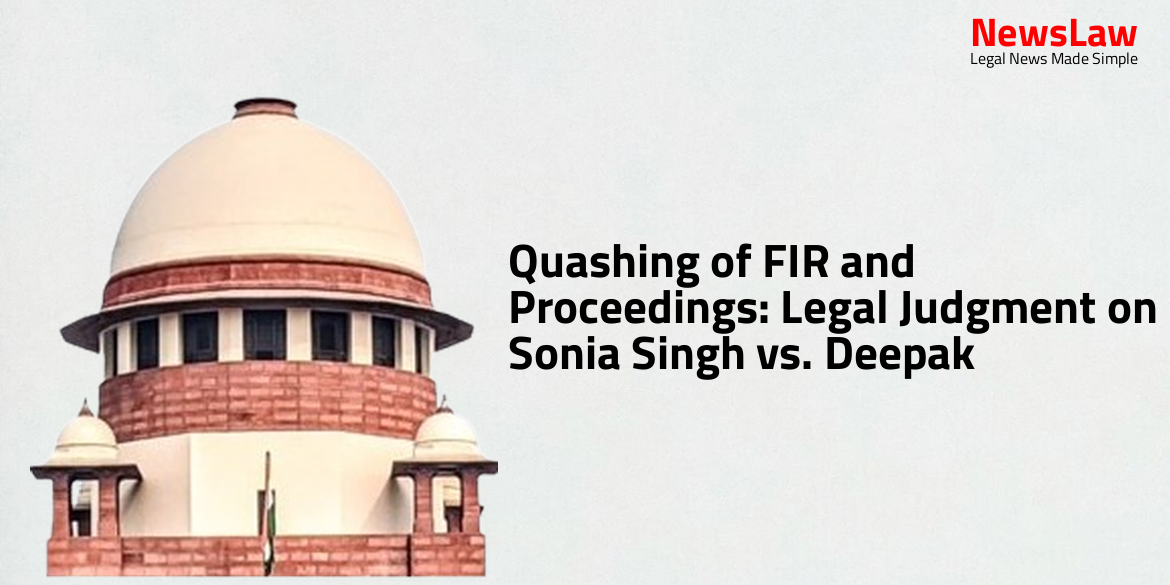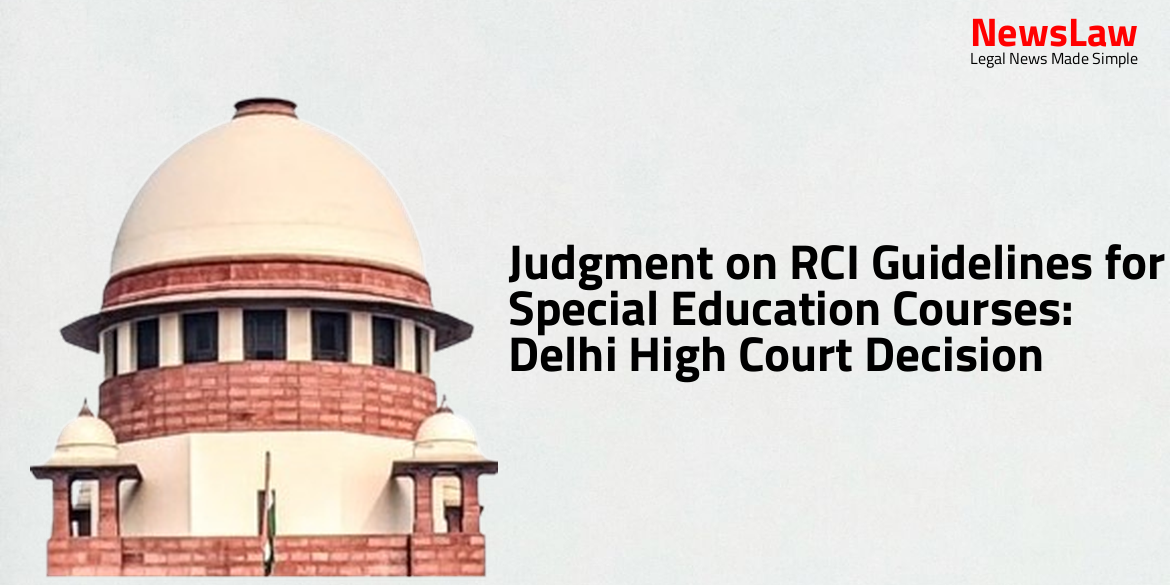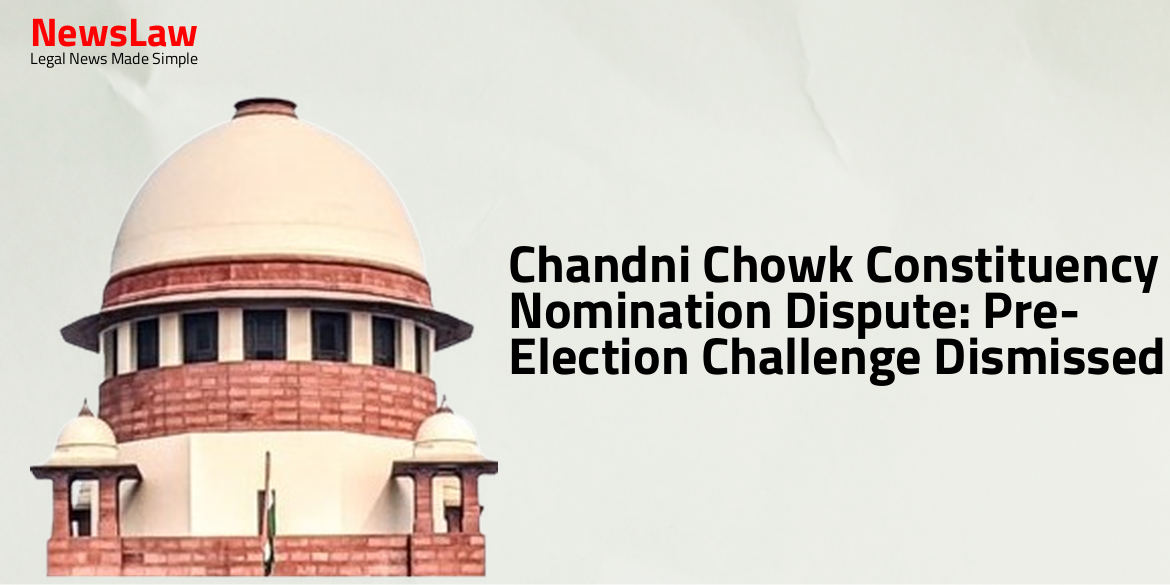Delhi High Court recently delivered a significant judgment in the case of Sonia Singh vs. Deepak concerning the quashing of FIR and related proceedings. The case delves into the intricate nuances of consent in physical relationships and the importance of full disclosure in legal matters. This summary sheds light on the critical considerations made by the court in determining the outcome of the case.
Facts
- FIR registered based on complaint of Sonia, alleging physical relations on false promise of marriage.
- Investigation revealed Sonia was already married with two children during alleged relationship.
- Sonia met the petitioner on a social media platform.
- Sonia, a Yoga Teacher, sustains her family through yoga classes.
- Sonia did not disclose her previous marriage in the complaint or charge sheet.
- Dayawati, mother-in-law of Sonia, identified her during proceedings.
- Sonia left her house with her children.
- Sonia’s previous marriage dissolved as per Village Panchayat customs.
- IO report revealed Sonia’s Corona test caused her inability to meet IO or appear in court.
- Reply filed by IO stating notice under Section 91 Cr.P.C served to Election Commission
- IO went to house of Sonia Singh and interrogated Dayawati, her mother-in-law
- Dayawati confirmed Sonia Singh as her daughter-in-law married to Deepak 11-12 years ago
Arguments
- Threats are constantly being received by the complainant/prosecutrix.
- The husband of Sonia will file an affidavit stating that the prosecutrix present is not his wife Sonia.
- Dayawati identified the prosecutrix as the wife of Deepak with two children.
- The respondent no.2/complainant was married at the time of the incident.
- The respondent no.2’s marriage dissolution claim lacks supporting proof.
Analysis
- The complainant and the petitioner were involved in physical/sexual acts even after miscarriage/abortion.
- The complainant was not immature and could foresee her welfare and make decisions.
- The chance of tampering with evidence and escaping jurisdiction are key factors in considering the bail application.
- The complainant filed the complaint only in 2015 after some disputes.
- Miscarriage/abortion occurred in Jan 2020 and June 2020, complaint filed in Oct 2020.
- The complainant permitted liberties only to someone deeply loved.
- The consent for physical relationship/sexual acts was not based on false promise of marriage.
- The complainant knew marriage with the petitioner was difficult due to caste reasons.
- The complainant submitted forged documents for identification.
- The complainant had a previous marriage and three children whom she left.
- The complainant seemed to have understood consequences of acts during her previous marriage.
- The complainant did not complain about false promises until she bore a child with the accused.
- The complainant’s consent was not under misconception of fact or false promise of marriage.
- There was a distinct possibility that marriage might not happen despite promises.
- The petitioner had reason to believe the consent was due to deep love.
- The continuation of proceedings in the FIR would be an abuse of law.
- Both parties were Hindus and could not remarry until divorce according to Hindu Marriage Act.
- The complainant continued to live with the accused knowing he was married with children.
- The decree of divorce was granted in Jan 2021, yet the complaint was filed earlier.
- The complainant did not give consent under misconception of fact for sexual relationship.
- The complainant concealed her previous marriage from both the petitioner and the police.
- There is a clear distinction between rape and consensual sex.
- The court must carefully examine whether the complainant genuinely wanted to marry the victim or had mala fide motives and made a false promise for lustful intentions.
- The distinction between mere breach of promise and not fulfilling a false promise is crucial.
- If the accused did not make the promise with the sole intention to seduce the complainant into sexual acts, it would not amount to rape.
- Different treatment is necessary for cases where the physical relationship resulted from love and passion and not deception.
- If the complainant had mala fide intentions or clandestine motives, it is considered rape.
- Consensual physical relationships between parties do not constitute an offense under Section 376 of the IPC.
- The accused’s promise to marry must have immediate relevance or direct nexus to the woman’s decision to engage in sexual activity.
- In cases where the complainant engaged in sexual intercourse but kept the relationship secret, the accused’s promise to marry may not be crucial to the sexual act.
- When invoking Section 482 of Cr.P.C. or Article 226 of the Constitution to quash FIRs, the court must closely examine the case beyond the averments in the FIR to ascertain manifest frivolity or vexation.
- In frivolous or vexatious proceedings, the court must analyze attending circumstances apart from the averments.
- The specific case under consideration in the judgement warranted the quashing of FIR and related proceedings as the consent for the sexual relationship was not under misconception.
Case Title: HEMANT KUMAR Vs. STATE OF NCT OF DELHI & ANR. (2024:DHC:3880)
Case Number: CRL.M.C.-4974/2022



